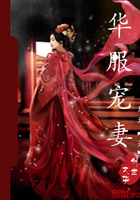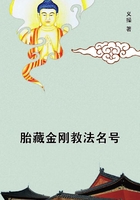"Yes," replied the officer. "There was a skirmish over the line between a company of Federals and a large force of guerrillas and rebels. The Federals were driven west along the line. Stewart is reported to have done reckless fighting and was captured. He got a Mexican sentence. He is known here along the border, and the news of his capture stirred up excitement. We did all we could to get his release. The guerrillas feared to execute him here, and believed he might be aided to escape. So a detachment departed with him for Mezquital.""He was sentenced to be shot Thursday at sunset--to-night?""Yes. It was rumored there was a personal resentment against Stewart. I regret that I can't give you definite information.
If you are friends of Stewart--relatives--I might find--""I am his wife," interrupted Madeline. "Will you please read these." She handed him the telegrams. "Advise me--help me, if you can?"With a wondering glance at her the officer received the telegrams. He read several, and whistled low in amaze. His manner became quick, alert, serious.
"I can't read these written in Spanish, but I know the names signed." Swiftly he ran through the others.
"Why, these mean Stewart's release has been authorized. They explain mysterious rumors we have heard here. Greaser treachery!
For some strange reason messages from the rebel junta have failed to reach their destination. We heard reports of an exchange for Stewart, but nothing came of it. No one departed for Mezquital with authority. What an outrage! Come, I'll go with you to General Salazar, the rebel chief in command. I know him.
Perhaps we can find out something."
Nels made room for the officer. Link sent the car whirring across the line into Mexican territory. Madeline's sensibilities were now exquisitely alive. The white road led into Agua Prieta, a town of colored walls and roofs. Goats and pigs and buzzards scattered before the roar of the machine. Native women wearing black mantles peeped through iron-barred windows. Men wearing huge sombreros, cotton shirts and trousers, bright sashes round their waists, and sandals, stood motionless, watching the car go by. The road ended in an immense plaza, in the center of which was a circular structure that in some measure resembled a corral.
It was a bull-ring, where the national sport of bull-fighting was carried on. Just now it appeared to be quarters for a considerable army. Ragged, unkempt rebels were everywhere, and the whole square was littered with tents, packs, wagons, arms.
There were horses, mules, burros, and oxen.
The place was so crowded that Link was compelled to drive slowly up to the entrance to the bull-ring. Madeline caught a glimpse of tents inside, then her view was obstructed by a curious, pressing throng. The cavalry officer leaped from the car and pushed his way into the entrance.
"Link, do you know the road to this Mezquital?" asked Madeline.
"Yes. I've been there."
"How far is it?"
"Aw, not so very far," he mumbled.
"Link! How many miles?" she implored.
"I reckon only a few."
Madeline knew that he lied. She asked him no more; nor looked at him, nor at Nels. How stifling was this crowded, ill-smelling plaza! The sun, red and lowering, had sloped far down in the west, but still burned with furnace heat. A swarm of flies whirled over the car. The shadows of low-sailing buzzards crossed Madeline's sight. Then she saw a row of the huge, uncanny black birds sitting upon the tiled roof of a house. They had neither an air of sleeping nor resting. They were waiting.
She fought off a horrible ghastly idea before its full realization. These rebels and guerrillas--what lean, yellow, bearded wretches! They curiously watched Link as he went working over the car. No two were alike, and all were ragged. They had glittering eyes sunk deep in their heads. They wore huge sombreros of brown and black felt, of straw, of cloth. Every man wore a belt or sash into which was thrust some kind of weapon.
Some wore boots, some shoes, some moccasins, some sandals, and many were barefooted. They were an excited, jabbering, gesticulating mob. Madeline shuddered to think how a frenzy to spill blood could run through these poor revolutionists. If it was liberty they fought for, they did not show the intelligence in their faces. They were like wolves upon a scent. They affronted her, shocked her. She wondered if their officers were men of the same class. What struck her at last and stirred pity in her was the fact that every man of the horde her swift glance roamed over, however dirty and bedraggled he was, wore upon him some ornament, some tassel or fringe or lace, some ensign, some band, bracelet, badge, or belt, some twist of scarf, something that betrayed the vanity which was the poor jewel of their souls.
It was in the race.
Suddenly the crowd parted to let the cavalry officer and a rebel of striking presence get to the car.
"Madam, it is as I suspected," said the officer, quickly. "The messages directing Stewart's release never reached Salazar. They were intercepted. But even without them we might have secured Stewart's exchange if it had not been for the fact that one of his captors wanted him shot. This guerrilla intercepted the orders, and then was instrumental in taking Stewart to Mezquital.
It is exceedingly sad. Why, he should be a free man this instant. I regret--""Who did this--this thing?" cried Madeline, cold and sick. "Who is the guerrilla?""Senor Don Carlos Martinez. He has been a bandit, a man of influence in Sonora. He is more of a secret agent in the affairs of the revolution than an active participator. But he has seen guerrilla service.""Don Carlos! Stewart in his power! O God!" Madeline sank down, almost overcome. Then two great hands, powerful, thrilling, clasped her shoulders, and Nels bent over her.















